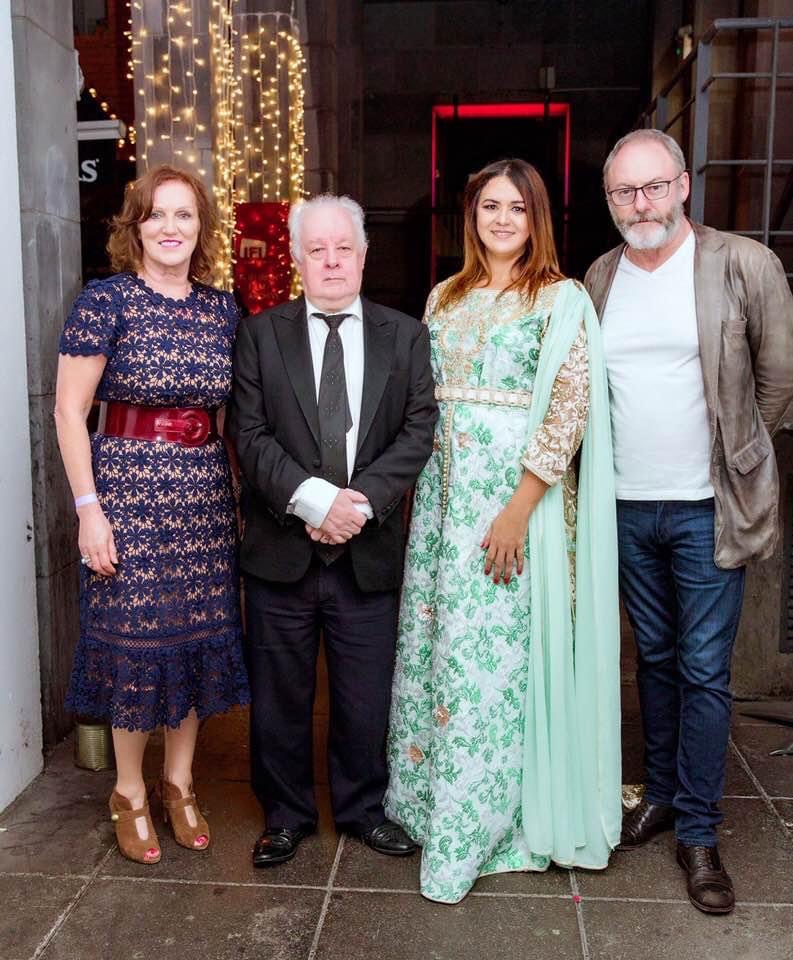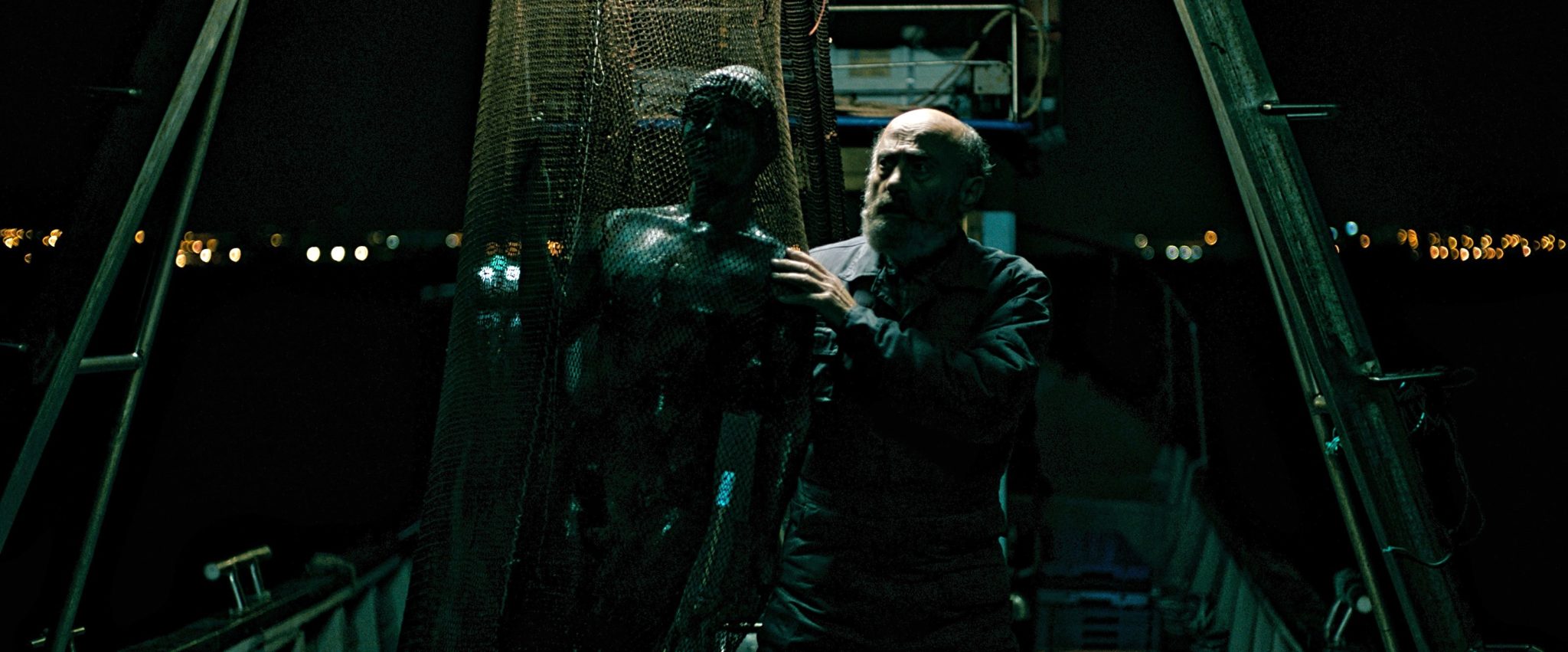- Film And TV
- 03 Nov 22
Dublin International Arabic Film Festival opening at Stella Cinemas this month

Gaza Mon Amour and six other Arabic films will be screened at the Stella Cinema, Rathmines and the Chester Beatty Library, Dublin from November 23rd until the 26th.
The ninth annual Dublin International Arabic Film Festival (DIAFF) will open at the beautifully restored Stella Cinema in Rathmines, Dublin on November 23rd.
The festival, presented by Dubai Duty Free, is headed up by multi-Oscar nominated filmmaker Jim Sheridan and is run by DIAFF Film Festival Director and filmmaker, Zahara Moufid. Seven Arabic films will be shown during the festival with the curtain raiser, Gaza Mon Amour being screened at The Stella Cinema. The remaining six films will be shown at the Chester Beatty at Dublin Castle from the 24rd to the 26th of November.
The original concept for DIAFF was the brainchild of Zahara Moufid, who approached Jim Sheridan to help her develop and promote an Arabic film festival in Dublin. Jim could see the cultural value that an Arabic film festival could hold and agreed that Irish audiences were starved of the opportunity to see the best new and old Arabic films ever made.
With the help of Jim, Zahara’s vison became a reality and the very first Dublin International Arabic Film Festival (DIAFF) opened at the Lighthouse Cinema in 2014. That year, legendary Egyptian actor Omar Sharif launched the festival and attended the opening night as well as hosting various film-making workshops which took place over the duration of the festival.
Famous faces who have supported the festival over the years have included The Edge, Liam Cunningham, actresses Amy Huberman and Fionnuala Flanagan and musician and activist, Damien Dempsey.
 Sinead El Sibai, Jim Sherian, Zahara Moufid and Liam Cunningham.
Sinead El Sibai, Jim Sherian, Zahara Moufid and Liam Cunningham.This year, the festival will screen three Palestinian films, one Moroccan film, two Egyptian films and another made by five rising female film directors from Saudi Arabia.
The opening film, Gaza Mon Amour was directed by Palestine born twins, Tarzan Nasser and Arab Nasser. The film is a sweet, dramatic comedy inspired by a true story that took place in Gaza in 2014. When a fisherman found a Greek statue of Apollo in the sea, Hamas confiscated it immediately and started looking for a buyer, hoping to make enough money to settle the country’s financial troubles. No one knows what happened to the statue. Some say it was sold and then destroyed in an air strike.
Whatever actually happened isn’t known but the story prompted the brothers to imagine what could have become of the statue. In their story, the statue is found by an old, single fisherman whose life is about to change dramatically due to the magical love powers of the mysterious statue of Apollo. Despite the deeply conservative traditions of his country, his age and the problematic politics of the region, the old fisherman stands steadfast in his pursuit of love. The tone of the film is funny, sometimes dark, even bitter at times, but above all, it's tender and melancholic.

The other two Palestinian films which will be shown during the course of the festival include, The Stranger and The Idol. The Stranger is about an unlicensed doctor working in a small village in the occupied Golan Heights who helps a man wounded in Syria and who then ventures forth to meet his new destiny. The Idol follows the fictional story of Palestinian wedding singer, Mohammed Assaf, a boy who dreams of competing in the Arab Idol singing competition but who does not have a passport or connections to make it from Gaza to Egypt.
Collapsed Walls is a Moroccan film which is about the residents of a small Moroccan city who struggle with their daily lives and try to keep going as they mourn the death of their loved ones.
The two Egyptian films are, The Knower and Souad. The Knower follows Younis, a man who lives with his wife and baby who decides to rob a bank through the internet but ends up being caught up with a dangerous gang. Souad tells the story of a 19-year-old girl who leads a double life. Souad presents herself as a traditional and veiled young woman among her family and society, while being obsessed with her appearance on social media. The drama occurs when her real-life clashes with the digital image she created for herself.
Becoming is a collection of short films made by five young Saudi Arabian female film makers. The films have a common thread and investigate how young Saudi women and girls live and deal with every-day issues and the struggles which they face. Topics such as arranged marriage, what it’s like to work and drive as a female in Saudi Arabia, religion and infertility are addressed in the beautifully written and shot films.
Jim Sheridan, DIAFF President said, “We hope DIAFF, its films and the stories and people they portray will continue to open the eyes of audiences to other cultures, their struggles, and everyday lives. Sometimes it’s hard to relate to other cultures, but film has a powerful way of sharing stories, evoking emotion, and letting an audience garner a better understanding and appreciation of other cultures and ways of life.
Zahara Moufid, DIAFF Director added, “We are delighted with the diverse mix of films which will be part of this year’s festival. So many interesting themes and stories will be told. Personally, I am very proud to have the chance to show the work of five young Saudi Arabian female film makers through the movie, Becoming. As an Arab woman myself, it’s so good to see Arabian, female film makers have the chance to have their work made and then seen by an international audience. Becoming is a wonderful collection of beautifully made films which deserve to be seem and embraced and we know that Irish audiences will be really blown away by the talent and skill of these young female film makers.”
For more information, or to book tickets please see dublinarabicfilmfestival.com.
RELATED

- Film And TV
- 13 Feb 26
Una Healy and Andrew Trimble to feature on The Late Late Show tonight

- Film And TV
- 13 Feb 26
FILM OF THE WEEK: Wuthering Heights - Reviewed by Roe McDermott

- Film And TV
- 13 Feb 26
Charli XCX releases new album Wuthering Heights
RELATED

- Film And TV
- 13 Feb 26
Mama Cass biopic starring Jessica Gunning in development

- Film And TV
- 12 Feb 26
Anthony Boyle to star in TV adaptation of Michael Magee novel Close to Home

- Film And TV
- 12 Feb 26
Dawson's Creek cast pays tribute to James Van Der Beek

- Film And TV
- 12 Feb 26


